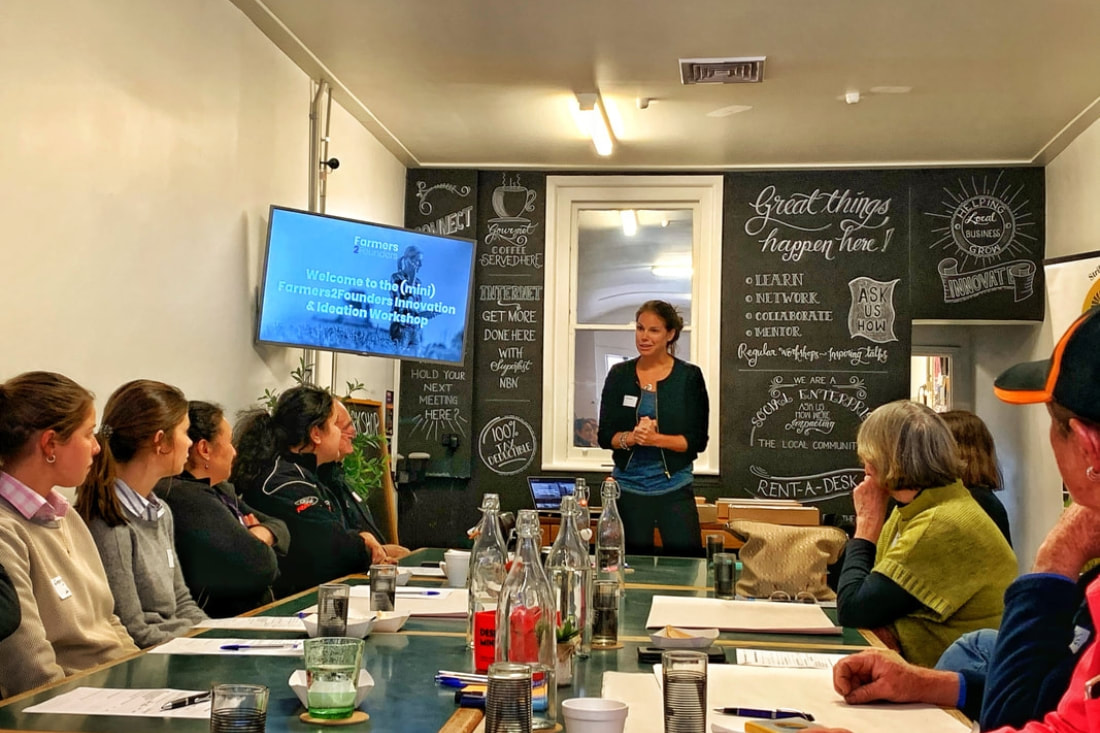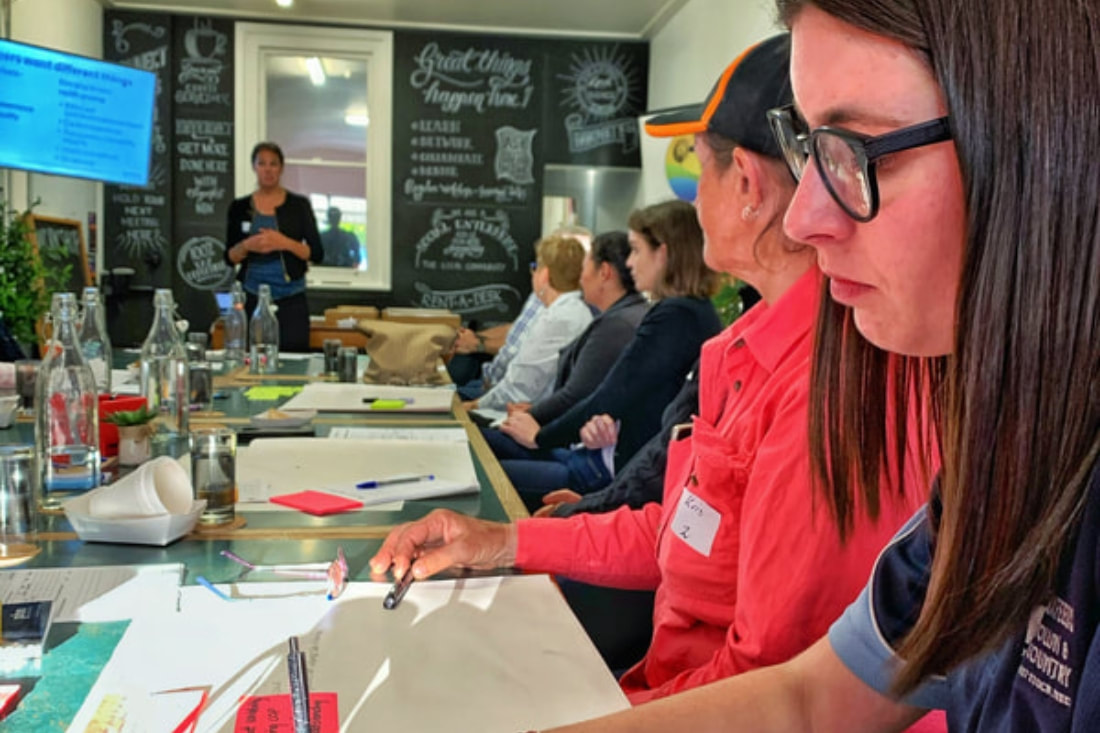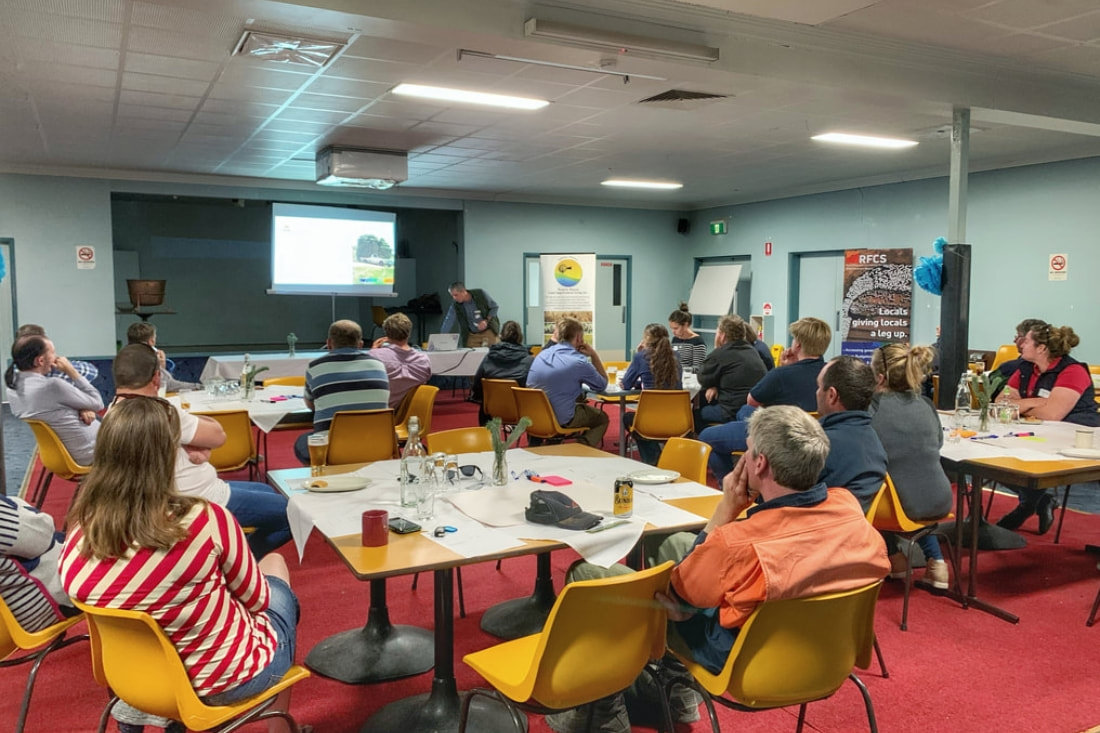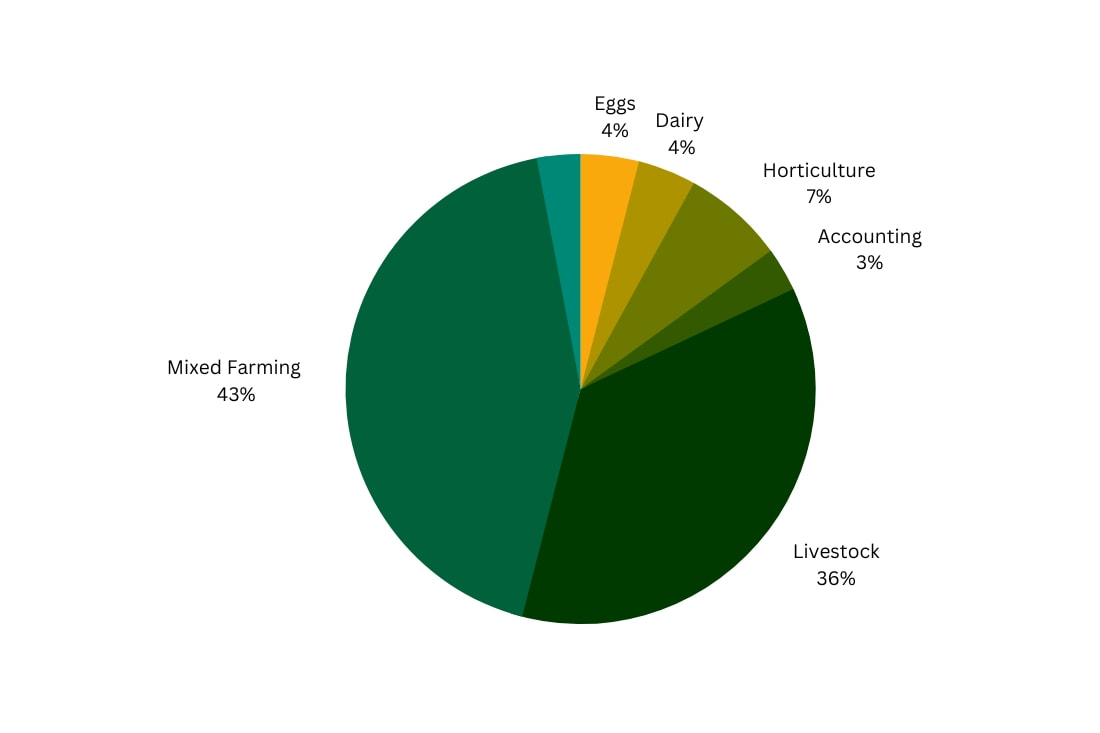Project SummaryA diverse group of 64 people attended the Tackling Tough Times Together workshops on the 8th & 9th of October 2019, at Mallee Rising in Swan Hill, the Moulamein Bowling Club and the Wakool District Services Club.
The key theme for these events was innovation and diversification opportunities to drive resilient, sustainable business within the region. As part of this, guest presenter Sarah Nolet travelled from Sydney to facilitate three mini-workshop activities from the Farmers2Founders national innovation program. The workshop activity was supported by presentations from Paul Dillon, founder of Mallee Rising, which operates as a local social enterprise/co-working space, and Tony Flett who is a NSW Rural Financial Counsellor based in Deniliquin, NSW. |
The SolutionSarah encouraged participants to interact by suggesting they find someone they didn’t know and learn about any innovations they had undertaken or agtech they had recently integrated into their business. Afterwards, they were asked to form groups of 4-6 people who weren’t familiar with each other. This tactic immediately eased any tension in the room, resulting in some lighthearted banter and few wry jokes. One of which included Sarah’s introduction of herself:
“I was raised on a small hobby farm in Silicon Valley, California, where my father and I mostly grew rocks and squirrels. It wasn’t until I went on a gap year that I really started to find my passion for agriculture.” |
However, one of her most important tactics was to lay down ground rules at the start of the workshop:
“While I know it is a key factor in your business right now, I want to ban the use of the ‘D’ and ‘W’ words today: drought and water. They are very important but unfortunately I don’t have the solutions to them, otherwise I would be presenting about something very different. What I can help with is looking at other current trends in the agricultural industry, like changing consumer demand or new agricultural technologies.”
Sarah asked numerous questions which caused groups to pool their knowledge and experience with existing agtech and link these with current threats and opportunities. She provided inspiring examples of businesses which had successfully innovated, adopted agtech, value added to existing products or connected with consumers to increase market demand. Finally, she opened the floor to anyone who had innovated within their business to share their experience.
Paul followed on from Sarah’s presentation in Swan Hill to explain his experience with digital disruption and agtech, including the opportunities he can see for local business:
“The future for co-working spaces as innovation hubs in a region is huge, just recently we ran the Digital Innovation Festival in Swan Hill, which brought in a range of innovators to share their experience with business owners. One such entrepreneur, Thingc Robotics showcased their autonomous robotic weeder which was developed to address horticultural labour shortages. I believe there is a lot of opportunity for us to be part of connecting businesses with technology and this will have positive implications for the local economy.”
In Moulamein and Wakool, Tony kicked off the day by detailing what drought support is available for producers in NSW and how it could relate to their business. Although this was a different speed to the innovation presentations, Tony explained how he used some of the positive mentality that Sarah encouraged to push his clients:
“I like to challenge my clients to test the assumptions they are using to make decisions. Some of the funding options allow businesses to make changes now, not only to cope with trying conditions but also to be ready to capture opportunities once the conditions improve.”
“While I know it is a key factor in your business right now, I want to ban the use of the ‘D’ and ‘W’ words today: drought and water. They are very important but unfortunately I don’t have the solutions to them, otherwise I would be presenting about something very different. What I can help with is looking at other current trends in the agricultural industry, like changing consumer demand or new agricultural technologies.”
Sarah asked numerous questions which caused groups to pool their knowledge and experience with existing agtech and link these with current threats and opportunities. She provided inspiring examples of businesses which had successfully innovated, adopted agtech, value added to existing products or connected with consumers to increase market demand. Finally, she opened the floor to anyone who had innovated within their business to share their experience.
Paul followed on from Sarah’s presentation in Swan Hill to explain his experience with digital disruption and agtech, including the opportunities he can see for local business:
“The future for co-working spaces as innovation hubs in a region is huge, just recently we ran the Digital Innovation Festival in Swan Hill, which brought in a range of innovators to share their experience with business owners. One such entrepreneur, Thingc Robotics showcased their autonomous robotic weeder which was developed to address horticultural labour shortages. I believe there is a lot of opportunity for us to be part of connecting businesses with technology and this will have positive implications for the local economy.”
In Moulamein and Wakool, Tony kicked off the day by detailing what drought support is available for producers in NSW and how it could relate to their business. Although this was a different speed to the innovation presentations, Tony explained how he used some of the positive mentality that Sarah encouraged to push his clients:
“I like to challenge my clients to test the assumptions they are using to make decisions. Some of the funding options allow businesses to make changes now, not only to cope with trying conditions but also to be ready to capture opportunities once the conditions improve.”
The impactOrganiser, Laura Kaylock was impressed by the community response to these events.
“We had a great mix of age, agricultural backgrounds and an even split of genders. All of which contributed to some interesting discussion on innovation and opportunities for local businesses. Everyone left with a smile on their face, which really was the best part of it all. Times are tough, and it’s important that we stick together.” |
|
At the end of the workshops, participants were asked what they would change in their business/job after the workshop, some responses included:
|
Project Partners
This event was made possible with support from the Foundation of Rural & Regional Renewal (FRRR) through funding by ANZ Bank and the Australian Govenrment with the aim of supporting communities impacted by drought.
The Western Murray Land Improvement Group would like to extend thanks to both Sarah Nolet & Georgia Pugh of AgThentic and Farmers2Founders, Tony Flett of NSW RFCS and Paul Dillon of Mallee Rising, for giving their time to present and for Columbo’s Café, the Moulamein Bowling Club and Sandy Pratt-nener at the Wakool Services Club for their fantastic catering.























